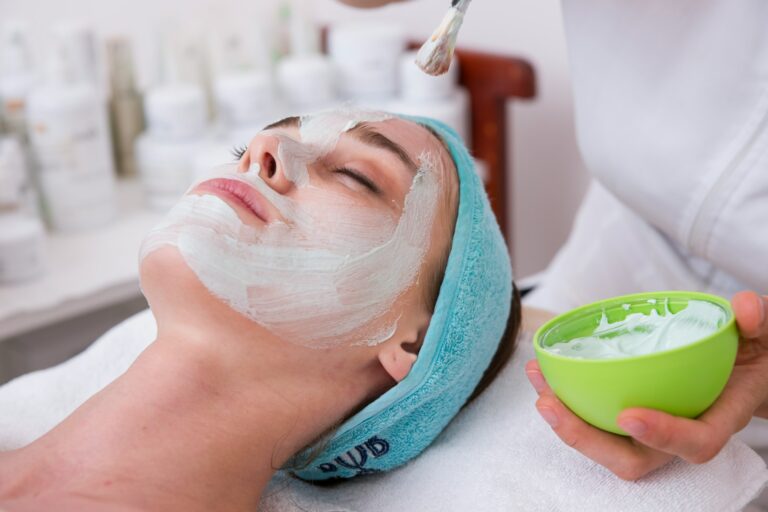Over time, you may have experienced skin irritation or allergic reactions from products containing artificial fragrances. These fragrances, which are often labeled simply as “fragrance” or “parfum,” can contain a mix of hundreds of undisclosed chemicals that may cause issues for your skin. Choosing fragrance-free options can significantly reduce your risk of sensitivity and improve skin health, especially for those with conditions like eczema or rosacea. By opting for fragrance-free skincare, you prioritize your comfort and well-being, allowing your skin to thrive without unnecessary irritants.
The Irritating Reality: How Fragrances Damage Skin Health
Many skincare products tout their pleasant scents as a selling point, but that enticing aroma often masks an underlying threat to your skin health. Fragrances, whether synthetic or derived from natural sources, can be highly irritating. For instance, products infused with floral or fruit scents may seem harmless, yet they can disrupt your skin’s natural barrier, leading to sensitivity, redness, and even severe allergic reactions. You might find that after using a new moisturizer with a delightful fragrance, your skin feels tight or appears blotchy; this could be a sign that the fragrance contained has caused an inflammatory response.
Studies indicate that up to 30% of people may experience skin irritation due to fragrances, with symptoms ranging from mild reactions to debilitating eczema or dermatitis. If your skincare routine includes items with added scents, you might unknowingly be contributing to this problem. The more fragrances you incorporate, the higher your chances of overloading your skin, leading to various issues, including long-term damage and sensitivity that can hinder your skin’s ability to heal itself.
Common Skin Reactions Triggered by Fragrance
Skin reactions to fragrances can manifest in several ways. The most common is contact dermatitis, which results in red, itchy patches or hives on the skin. You may also experience a burning sensation or dryness, which are direct indicators that your skin is reacting negatively to one or more of the fragrant compounds. Even seemingly innocuous products, such as body lotions or cleansers, can cause these reactions as the skin absorbs the chemical compounds present in fragrances, leading to inflammation and irritation.
In some cases, prolonged exposure can exacerbate the reaction, transforming mild irritation into chronic conditions such as eczema or psoriasis. If you’ve dealt with persistent skin conditions, examining your skincare labels for hidden fragrances might help you pinpoint common irritants. Acting proactively by opting for fragrance-free products can significantly enhance your skin’s resilience and overall health.
Fragrance Allergies: More Common Than You Think
Fragrance allergies are becoming increasingly recognized among dermatologists and skincare professionals. Statistics reveal that up to 10% of the population may have a true allergic reaction to certain fragrance components. This stark figure underscores the importance of scrutinizing product labels; even a product touted as hypoallergenic can contain potential allergens that trigger adverse reactions. If you’ve noticed that your skin reacts negatively to scented products, it may be a sign of developing a fragrance allergy.
The accumulation of exposure to fragrance allergens can lead to sensitization, making your skin more reactive over time. Some common allergens include limonene and linalool, often hidden within the broader term “fragrance” on labels. If you find that your skin exhibits heightened sensitivity, a consultation with a dermatologist can provide clarity on which fragrances to avoid and recommend safe alternatives for your skincare routine.
The Science of Scent: Understanding the Impact of Fragrance on Skin
Fragrance, whether natural or synthetic, interacts intricately with your skin, often leading to unintended consequences. Your skin’s barrier function can be affected by the presence of scent additives in skincare products, impacting your overall skin health. A study published in the *Journal of the American Academy of Dermatology* found that up to 30% of individuals may have some form of sensitivity to fragrance ingredients, which can lead to irritation and the exacerbation of conditions like eczema and dermatitis. This raises concerns about the long-term use of fragranced products, especially in sensitive skin types.
The Role of Synthetic vs. Natural Fragrances
Synthetic fragrances are typically comprised of a complex mixture of several chemical compounds engineered to imitate natural scents or create new ones entirely. While they can provide pleasant aromas, they are often derived from petroleum products and can contain allergens or irritants, which may be a source of unnecessary risk for your skin. In contrast, natural fragrances derived from important oils and botanical extracts are perceived as safer alternatives; however, they still carry the potential for allergic reactions due to the presence of naturally occurring compounds. The distinction between synthetic and natural is not simply one of safety, as some natural fragrances can also cause adverse reactions.
Choosing between synthetic and natural fragrances often leads to a dilemma. On one hand, synthetic fragrances can be more stable and provide consistent scents across batches, while natural fragrances can vary in potency and quality due to their organic nature. This lack of consistency in natural products may lead to greater unpredictability regarding skin reactions, making it important for you to know your own sensitivities when selecting skincare items.
The Connection Between Fragrances and Inflammatory Responses
Your skin may respond to fragrance with an inflammatory reaction, which can result in redness, swelling, and discomfort. Research indicates that certain fragrance compounds can trigger histamine release or activation of mast cells, both of which play a pivotal role in the inflammatory response. This becomes particularly significant for individuals with pre-existing skin conditions, as the irritation can aggravate symptoms and prolong healing, creating a vicious cycle of inflammation.
Inflammatory responses can commonly present as contact dermatitis, where your skin becomes irritated and sore after exposure to specific fragrance ingredients. Studies have also shown that fragrances can act as an irritant, even for those without prior sensitivities. The skin may not only become red and inflamed but can also encounter long-term shifts in its microbiome balance. With such severe implications tied to the use of scented products, it’s important for you to consider the potential for fragrance-induced irritation and make informed choices about the skincare products you use.
Redefining Sensitivity: Who Needs Fragrance-Free Skincare?
The Sensitive Skin Spectrum: Identifying Your Skin Type
Your skin can fall anywhere on a broad spectrum of sensitivity, ranging from mildly reactive to severely intolerant. Conditions like eczema, rosacea, and contact dermatitis can significantly heighten your skin’s sensitivity levels, meaning your tolerance for fragrance-containing products is likely low. You may notice tightness, redness, or a burning sensation after using fragranced items, indicating that your skin is not only sensitive but potentially reactive to irritants. Understanding where you fall on this spectrum can guide your choices in the skincare aisle. A simple patch test with a new product can help you determine your skin’s immediate reaction to fragrance and other potential allergens.
Populations at Higher Risk: When to Avoid Fragrances
Certain populations are more vulnerable to skin irritation from fragrances. Infants and young children, for example, have developing skin that is thinner and more permeable, making them particularly susceptible to adverse reactions. Additionally, older adults may experience skin changes due to natural aging processes, such as increased dryness and reduced barrier function, making even mildly fragranced products unsuitable for their care routines. Those with pre-existing skin conditions, such as psoriasis or highly allergic individuals, should also steer clear of fragrances to avoid triggering flare-ups or further complications.
Individuals undergoing treatment for skin cancer or those using certain medications can experience heightened sensitivity as a side effect. In such cases, the skin’s barrier may be compromised, and any added fragrance can exacerbate irritation or cause allergic reactions. It is advisable to consult with a dermatologist to find fragrance-free options that will not irritate your skin and will effectively address your skincare needs. Taking these factors into account can empower you to make informed choices about your skincare and avoid unnecessary discomfort.
Beyond Fragrance-Free: Navigating the Ingredient Label Landscape
Recognizing Hidden Fragrance Ingredients
Many skincare products labeled as “fragrance-free” may still contain hidden fragrance ingredients that can trigger adverse reactions. Terms like “parfum” or “fragrance” on the ingredient list can indicate that a product contains synthetic fragrance compounds, which can be just as irritating as their more overtly perfumed counterparts. In fact, the term “fragrance” can encompass a myriad of unlisted chemicals meant to create a specific scent profile, with studies showing that over 3,000 different chemicals can be combined to make just one olfactory experience. By opting for products that are explicitly labeled as being free from these ingredients, you’re taking a proactive step in protecting your skin.
Additionally, some natural compounds, including “necessary oils”, can also pose risks. Though they are derived from plants, these oils can still instigate reactions in individuals with sensitive skin or allergies. It’s necessary to scrutinize every ingredient, understanding not just what is included, but also the potential effects it may have on your skin.
Alternatives to Fragrance in Skincare: What to Look For
Seeking out truly fragrance-free alternatives in skincare requires careful examination of product labels. Look for products with ingredients like “aloe vera,” “hyaluronic acid,” or “shea butter,” which not only hydrate the skin but also naturally enhance its barrier function without the pitfalls of synthetic fragrances. Natural botanical extracts, such as “green tea extract” or “chamomile,” are often found in soothing formulations and provide added antioxidant benefits. Furthermore, ingredients known for their calming properties, like “niacinamide” or “panthenol,” are excellent choices as they can minimize redness and irritation while avoiding the risks associated with fragrances.
Choosing products that are labeled as non-comedogenic or hypoallergenic can also lead you to better options. These terms suggest that the formulation is less likely to cause breakouts or irritations. Overall, being armed with knowledge about which ingredients to prioritize not only improves your skincare routine but also promotes healthier skin without the potential baggage of unwanted fragrances.
The Shift Towards Sensible Choices: Why Brands are Going Fragrance-Free
Consumer Demand for Transparency and Safety
Your awareness and demand for transparency in skincare have significantly influenced brand formulations over recent years. As consumers become more knowledgeable about the potential irritants and allergens found in many beauty products, the push for safer, more transparent ingredient lists has intensified. Brands are responding to this shift by prioritizing fragrance-free options, recognizing that consumers are now looking for products that emphasize clean beauty and safe skin health. In fact, studies have shown that over 30% of consumers are willing to pay a premium for fragrance-free and clean skincare products, indicating a solid preference that brands can no longer ignore.
Brands that choose to eliminate fragrances are aligning themselves with a growing movement championed by consumers who value efficacy over allure. This creates a win-win situation where your skin benefits from less irritants, and companies foster trust and loyalty. Additionally, the rise of social media has amplified these voices, allowing consumers to hold brands accountable for their ingredient choices, paving the way for a more conscientious industry.
Harmonizing Ethical Practices with Skincare Science
The integration of fragrance-free formulations into the ethos of skincare brands goes hand-in-hand with a commitment to ethical practices. Brands focused on the welfare of animals and the planet are finding that creating fragrance-free products not only resonates with consumers but also reduces the complexity of their formulations. By avoiding synthetic fragrances, which are often derived from fossil fuels, brands can offer you cleaner, more sustainable options. Ethical companies are leveraging this change to bolster their reputation and affirm their dedication to your health and well-being.
Amidst changing consumer preferences, the merging of ethical commitments and scientific advancements in skincare is particularly noteworthy. The introduction of natural botanicals and plant-derived ingredients has shown to replace synthetic fragrances effectively while providing additional skin benefits. For example, brands are using necessary oils, which not only help improve the scent of their products but also function as beneficial actives, enhancing your skincare routine without compromising safety. This harmonization reflects an understanding that ethical practices and skincare science can coexist to benefit both you and the environment.
To wrap up
On the whole, choosing fragrance-free skincare products is a wise decision that can greatly benefit your skin’s health. You may find that these products reduce the likelihood of irritation, especially if you have sensitive skin or allergies. By steering clear of artificial fragrances, you can focus on the imperative ingredients that nourish and protect your skin, leading to a more balanced and radiant complexion. Additionally, knowing that your skincare routine is free from potential irritants allows you to feel confident and secure in the choices you make for your beauty regimen.
Ultimately, embracing fragrance-free options means prioritizing your skin’s well-being. You gain the ability to enjoy the pure benefits of high-quality formulations that support your unique skincare goals without the distractions and risks associated with added scents. By making an informed decision to go fragrance-free, you empower yourself to create a skincare routine that is not only effective but also mindful of your skin’s sensitivity and overall health.







